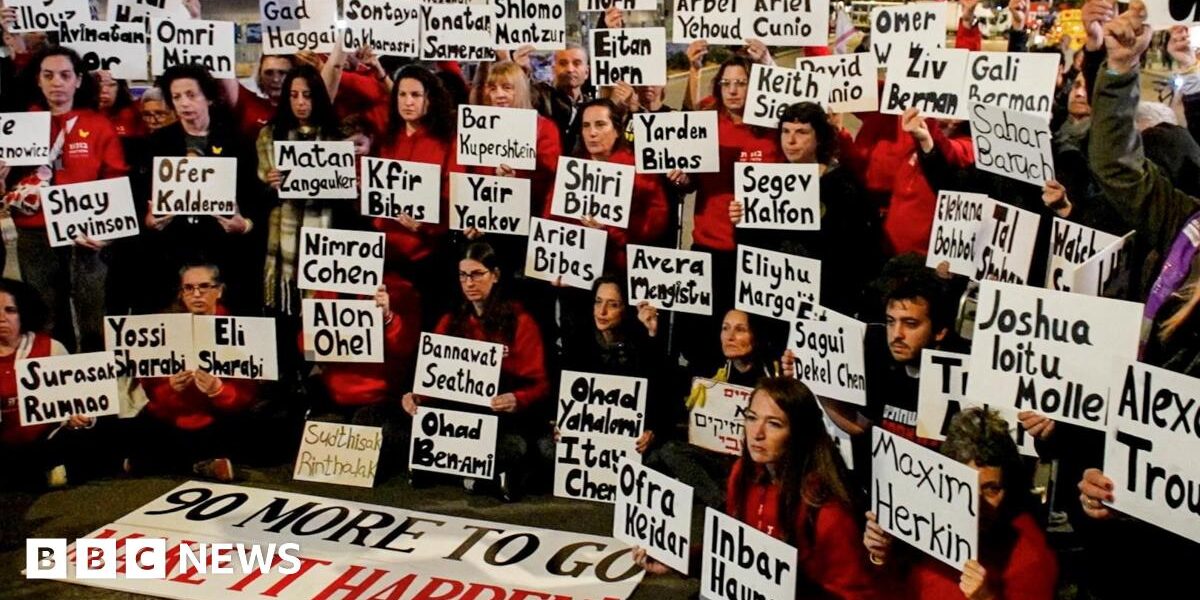One of the hostages who Israel says should be released in the first phase is Or Levy, 34, who was attending the Nova music festival with his wife Eynav on 7 October 2023.
The couple, whose son Almog is now three years old, fled to a roadside bomb shelter after Hamas gunmen attacked. Eynav was killed inside the shelter while Or was kidnapped and taken back to Gaza.
Over the weekend in Tel Aviv’s Hostage Square, Or’s brother Michael told the BBC that waiting to hear about the statuses of the remaining 26 hostages was like being plunged into “a reality the devil himself invented and part of an evil reality show that Hamas is enjoying”.
He also said he had received no indication about when Or would be freed and there would be what he described as “an end date to this nightmare”.
Michael also said he feared that Hamas could yet delay his brother’s release.
“We cannot just be calm and hope for the best. We have to keep going. And until he’s here, I won’t believe it actually happened.”
On Saturday, following the release of four female Israeli soldiers in the second exchange of the ceasefire, the Israeli military’s spokesman said it was “extremely concerned” about the welfare of three hostages – Shiri Bibas, 33, and her two young sons, Kfir, two, and Ariel, five.
Hamas claimed in November 2023 that they had been killed in an Israeli air strike. However, the Israeli military has not confirmed their deaths and the Israeli government has insisted they are among the 33 hostages handed over in the first phase.
Negotiations for the second phase – which should see the remaining hostages released in exchange for more prisoners, a full Israeli troop withdrawal and “the restoration of sustainable calm” – are due to start on 4 February.
The third and final stage will involve the reconstruction of Gaza, which could take years, and the return of any remaining hostages’ bodies.
The Hostages and Missing Families Forum is demanding that the Israeli government implement all three phases and ensure the return of every hostage.
“We are not whole without them all. Our nation needs everyone at home, together. Until the last hostage,” it said.
Meanwhile, the deputy chief of the Israeli military’s medical corps said some of seven newly released hostages had spent “the entire time in tunnels underground” in recent months.
“Some of them were alone through the entire time they were there,” Col Dr Avi Banov said, according to Reuters news agency. “Those who said they were together were in better shape.”
The hostages had said their treatment improved in the days leading up to their release, when they were allowed to shower, change their clothes and received better food, he added.





